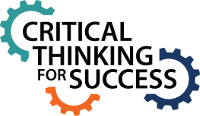Successful Dating Doesn’t Happen On Accident

When you’re dating, do you know what you’re looking for?
When you’re dating, what’s your game plan? Do you know what you’re looking for? How will you figure out if someone is the right fit? Are you even sure you want a relationship yet?
Most people go into dating without any sort of planning, hoping they’ll stumble into happiness like in a romantic comedy. However, there’s no director behind a camera directing you towards a pre-written happy ending. Like anything else, the only way to really find success in your love life is to be intentional and conscious about how you’ll reach your goal.
So, how do you find the right romantic partner and determine if they’re really the right one? There are four steps:
- Figuring out if you’re ready to date
- Listing your criteria for a partner
- Finding someone whose criteria you also fit
- Using dating to see what life with them would be like
1. Are You Really Ready to Date?
Nothing will sabotage your love life quite like rushing in before you’re ready to date. Before you start looking for someone, ask yourself: “Should I be in a relationship right now?”
While you might want to jump to saying “of course I’m ready,” don’t assume that without really assessing if it’s true. Do you really know this is what you want right now, or do you just think this is what you should want?
We get a lot of messages from everyone around us all our lives that finding “the love of your life” is your ultimate goal in life. From the age our parents first start showing us Disney movies, we’re told that a romantic partner will make us happy. We’re told that we should always be searching for a partner, and that any time spent single is time wasted.
Don’t buy into those assumptions. A relationship can’t be the source of your happiness, and trying to make yourself happy with a relationship will set you up for failure.
Instead, you should first make sure you’re truly in a place in your life where you can deeply care about somebody. You can’t just be avoiding loneliness, or else that’ll breed resentment.
If you have trouble coming up with criteria for a partner in the next step, this might be a sign that you aren’t clear on what you feel your own purpose is, and thus your purpose for wanting to be part of a couple. Are you looking for short-term relationships? Are you seeking someone with whom to raise children?
If you can’t answer those questions, take a step back and consider if you should hold off on dating until you know yourself better, have a better idea of what you want, and are emotionally and mentally ready.
2. What Are Your Criteria for a Partner?

Before you start seeking someone, write out you criteria for intellectual, emotional, and physical compatibility.
The next thing to figure out before you start dating is, “What am I looking for in a romantic partner?” Many of the people we talk to, especially men, have clearer criteria for car shopping than they do for finding a spouse. How are you supposed to find someone without defining who it is you’re searching for?
When Bob Kauffman, founder of Critical Thinking for Success, met his wife, he had a list of 17 criteria he wanted in a partner. She had a list, too—and hers had 42 criteria!
It’s important to write your criteria out so you can really see it and imagine what a person who meets all those criteria would be like. What are all the specific traits that make someone attractive to you?
Your list should cover three areas: the head, the heart, and the pelvis. Another way of putting it is, you want criteria for intellectual, emotional, and physical compatibility. What those areas mean to you is up to you.
Be thoughtful, fill up your list as best you can, and revise constantly. Being in tune with your list is key to knowing a good date from a bad one, and a potential lifelong partner from a future ex.
3. Do You Meet Your Partner’s Criteria?

In dating, compatibility is a two-way street. Do you meet your partner’s criteria?
Once we think we’ve found someone who checks all our boxes, we of course want to be with them. However, that’s only half the equation. The other half is: “Do I meet my partner’s criteria for a spouse?”
A successful relationship is one where you both are good matches for each other, not where just one person is a good match for the other. Unfortunately, when you meet someone who fits your criteria, your vision often gets clouded.
You get preoccupied with wanting to be with them. You avoid the thought that you might not be as great a fit for them as they are for you. You might even try to be someone you’re not, just to try to conform to this person’s criteria.
Trying to make things work this way is like trying to force a square block through a round hole. It rarely works. When it doesn’t work, you may start to wonder if there’s something wrong with you. There isn’t—you just don’t fit their criteria.
It won’t serve either of you any good if you only find out months or years later that they have criteria you can’t meet, such as wanting children or wanting to move abroad. Before you fall head over heels and commit yourself to pursuing a relationship with someone, make sure you can confirm what their criteria are and that you meet them as well.
4. What Are They Really Like?

We all try to put our best selves forward at first. Dating is how you figure out what the person’s really like and whether you make a good team.
As we just noted, when you like someone who meets your criteria, you’re prone to pretending you’re someone else to fit theirs. If you’re doing it, lots of other people must be doing it, too.
This isn’t to say that everyone is lying to you or doing something malicious. It just means that when we date, we naturally try to put forward the best version of ourselves. It’s not an entirely different person, just a particular version or side of us. We’ll wear our best shirts, watch our manners more closely, and keep quiet about our more embarrassing thoughts and habits.
If everyone is presenting their best selves, how do you get to know their real selves? How long before you see their worst selves? How do you figure out if the people you’re seeing really fit your criteria, or if they’re just trying to be someone they’re not in order to please you?
This is what dating is for. Dating lets you see the potential partner in all sorts of different environments and situations and see how they respond to them. From those responses, you get to see what they’re like and build your mental picture of what life would be like with them.
You should enjoy your dates. However, you should also be using dating to assess how well you work together as a team. You should be asking yourself, “Is this really how this person is? Is this how they’ll be later? Do I want to be their partner?”
Remember though, there’s no shame in asking for help. If you’re having trouble figuring out if you’re ready for a relationship yet, see our previous blog on the subject, “How to Be Successfully and Happily Single Before You Start Dating.” We also use cognitive training to improve clients’ social and emotional skills, so it’s worth reading about those treatments and inquiring about our life coaching services.
Good luck!







